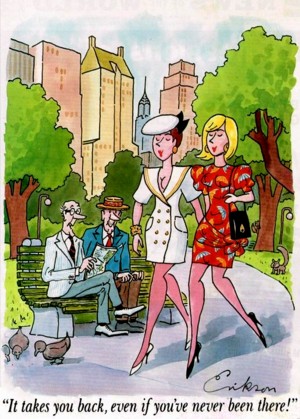A Pivotal Year
1963 was a pivotal year for me. It was the year I completed High School and matriculated to University; the year Bob Dylan became big in my life; and Beatlemania began; the year JFK was assassinated.
The year had started with a mystery the Bogle-Chandler deaths in Lane Cove National Park in Sydney that confounded Australia. Then came Buddhist immolations and a CIA supported coup and regime change in South Vietnam that was both the beginning and the begining of the end for the US effort there.
Suddenly the Great Train Robbery in Britain was headline news there and in Australia. One of the ringleaders, Ronnie Biggs was subsequently found in Australia but stayed one step of the authorities for many years.
The 'Space Race' was well underway with the USSR still holding their lead by putting Cosmonaut, Valentina Tereshkova into orbit for almost three days and returning her safely. The US was riven with inter-racial hostility and rioting. But the first nuclear test ban treaties were signed and Vatican 2 made early progress, the reforming Pope John 23 unfortunately dying midyear.
Towards year's end, on the 22nd of November, came the Kennedy assassination, the same day the terminally ill Aldous Huxley elected to put an end to it.
But for sex and scandal that year the Profumo Affair was unrivalled.
The Profumo affair has been eviscerated in the media and in books many times and has been glossed-over in almost as many. The Netflix drama series: The Crown comes to mind.
The most recent manifestation is: The Trial of Christine Keeler. A BBC television series that: "takes us behind the headlines to tell a human story about the sexual and cultural politics of one of the most revealing and iconic stories of modern times".
According to the blurb: "The Trial of Christine Keeler takes a fresh look at one of the most infamous British stories: the chain of events in the 1960s that came to be known as the Profumo affair."
"At the center of the storm was 19-year-old Christine Keeler - a young woman whom the powerful, male-dominated establishment sought to silence and exploit, but who refused to play by their rules."
Christine is represented as a 19-year-old ingenue, drawn-in, under a powerful man's spell. Presumably for the purposed of dramatisation, serval of the events depicted as contemporary were not. They began in 1961 and took place periodically - over nearly three years - coming to a head with the trials in 1963, when she was 21.
Profumo
John Profumo was a British cabinet minister, Secretary of State for War, in the Conservative government of Harold Macmillan. Profumo had been targeted by a Soviet agent as a possible source of strategic information.
Christine Keeler was the bait and Stephen Ward was the, perhaps unwitting, facilitator.
At the height of the scandal there were fresh revelations almost daily, involving all sorts of colourful characters: West Indian drug runners and jazz musicians; Russian spies; Royals and members of the British aristocracy; actors and entertainers.
It had the potential to bring down the British Government and to damage the Monarchy. But the real interest for me was simple: I thought Christine Keeler was hot.
It amazed me that Christine was only three years older than me and her equally notorious friend, Mandy Rice-Davies, only a year my senior. Time would tell that I chose the wrong one to set on a pedestal. Mandy used her notoriety to good effect; kept herself smart and remained a minor celebrity until her death in 2014 (aged 70). Not so Christine.
The Profumo scandal was the Bill Clinton - Monica Lewinsky affair of my teen years.

